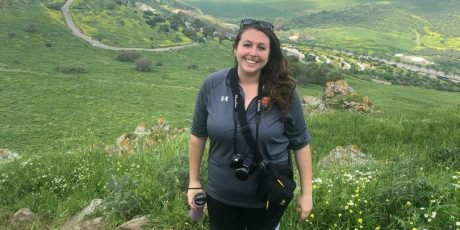What every new teacher should know before stepping into an Israeli classroom
Stepping into an Israeli Classroom: What You Need to Know
Teaching in Israel is a unique and rewarding experience, but it comes with its own set of cultural norms that may surprise you. Israeli schools have a relaxed yet dynamic environment where teachers and students interact informally, and adaptability is key. If you’re preparing to teach English in Israel as a Masa Israel Teaching Fellow—understanding the school culture, dress code, and classroom expectations will help you feel more prepared and confident in your role.
This guide will walk you through what to expect, from classroom interactions and student behavior to dress code and informal language, so you can thrive in an Israeli school setting.
- Israeli School Culture: A Casual Yet Respectful Atmosphere
One of the first things you’ll notice when teaching in Israel is the informal nature of the school environment. Teachers and students are on a first-name basis, including the principal! While this might seem unusual at first, it fosters a sense of equality and openness that is central to Israeli education.
Key Cultural Norms in Israeli Schools:
✅ First-Name Basis – Forget “Mr.” or “Ms.”; students will address you by your first name.
✅ Direct Communication – Israeli students are encouraged to express their opinions freely, sometimes even challenging authority.
✅ Interactive Learning – Group work, debates, and hands-on activities are common in Israeli classrooms.
✅ Casual But Engaged – The classroom may feel more chaotic than you’re used to, but that doesn’t mean students aren’t learning!
Israeli students are known for their confidence and curiosity, and they will often question lessons, ask “why?” frequently, and challenge traditional classroom hierarchies. While this may feel like defiance at times, it’s actually a sign of engagement and critical thinking—skills highly valued in Israeli education.
- Dress Code: Keep It Casual but Modest
One of the perks of teaching in Israel is that the dress code is relaxed compared to many other countries. However, expectations still vary depending on the type of school you’re placed in (secular vs. religious).
What to Wear in an Israeli School
👕 Casual, comfortable clothing – Jeans, sneakers, and a modest t-shirt are perfectly acceptable.
👗 Modest attire for religious schools – In religious settings, women may need to cover their shoulders and knees, and men may need to wear a kippah.
🌞 Weather-appropriate choices – Schools may not have air conditioning, so dressing for the heat is key in the summer months.
What to Avoid:
🚫 Overly formal outfits – No need for suits, ties, or high heels.
🚫 Revealing clothing – Avoid crop tops, short shorts, or anything too tight, especially in religious communities.
- Classroom Culture: A Different Teaching Experience
Israeli schools prioritize active learning over rote memorization. Teachers are encouraged to be creative and flexible in their approach to education.
What to Expect in an Israeli Classroom:
📌 Hands-on learning – Students often work in groups, discuss ideas openly, and engage in interactive activities.
📌 Flexible schedules – Timetables can change last-minute, and lessons may be adjusted on the spot.
📌 Loud and lively classrooms – Don’t be surprised if students move around and talk a lot; it’s a sign of engagement rather than disrespect.
📌 Student-teacher relationships – Teachers are seen as mentors rather than strict authority figures. Expect students to chat with you outside of class and share personal stories.
- Informal Language & Slang in Israeli Schools
Since Israeli schools have an informal atmosphere, you’ll quickly pick up on some commonly used Hebrew phrases and slang. Here are a few that will come in handy:
Basic Hebrew Phrases for Teachers:
🗣 Boker tov – Good morning!
🗣 Lama? – Why? (You’ll hear this a lot!)
🗣 Nachon? – Right? (A common way to check understanding)
🗣 Savlanut! – Patience! (Useful when managing an energetic classroom)
Israeli Slang Students Use:
🗣 Achla – Cool/great
🗣 Sababa – No problem / It’s all good
🗣 Chai beseret – Literally “living in a movie,” meaning “being dramatic”
Most students will be eager to practice their English with you, but they’ll also love teaching you Hebrew slang in return. Don’t be afraid to ask them to explain new words!
- What to Expect from Students and Colleagues
Your experience in an Israeli school will be shaped not only by the students but also by your fellow teachers and staff. Israeli workplaces, including schools, have a family-like atmosphere where relationships matter.
Students:
👫 Friendly but direct – Israeli kids are social and will treat you like part of their circle, but they are also very direct and may ask personal questions you wouldn’t expect.
🤗 Affectionate & warm – Don’t be surprised if younger students hug you or bring you small gifts!
Colleagues:
☕ Coffee breaks are sacred – Teachers often take breaks together, chatting over coffee and snacks. It’s a great time to bond!
👥 Collaborative environment – Israeli teachers are usually supportive and work together to solve classroom challenges.
- Tips for Success as a Teacher in Israel
Here are a few pro tips to help you adjust to your new teaching environment:
✔ Go with the flow – Schedules change, plans shift—adaptability is your best asset.
✔ Build relationships – Connecting with students and fellow teachers will make your experience more meaningful.
✔ Embrace informality – The casual approach to education doesn’t mean a lack of respect; it’s just a different cultural style.
✔ Use humor – Israeli students respond well to teachers with a good sense of humor.
✔ Learn some Hebrew – Even a few basic phrases will go a long way in building rapport with students.
Embracing the Israeli Teaching Experience
Teaching in Israel is an adventure filled with cultural surprises, rewarding moments, and personal growth. Whether you’re preparing to start or already in the classroom, embracing Israel’s informal school culture and teaching norms will enhance your experience.
As a Masa Israel Teaching Fellow (MITF), your 6- or 10-month journey is about more than teaching English—it’s about building connections, experiencing Israeli life, and making a real impact.
Thinking about teaching in Israel? MITF offers a structured, immersive program where you’ll gain hands-on experience while living like a local. Follow @mitf_masafellows to see what fellows are up to in real time!











